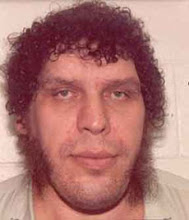I arrived safely in Lebanon yesterday afternoon. The airport is right on the sea and you can smell the warm Mediterranean air the moment you step off the plane. The sun was shining and it reflected off all the windows in the homes that are snuggled in the hills around the city. My contact was late picking me up. I didn't have his mobile number so I just made up a sign with his name on it and waited near the baggage pickup area.
I was one of a few “gringos” waiting there, but people hardly noticed. With its beauty as a city, its intriguing politics, and its exceptional higher education, Beirut has seen its share of outsiders. The city is full of foreign tourists, journalists, students, and businessmen from all over the region and the world. I am not sure which category I fit into- probably a mesh of all four- but Beirut definitely has something for everyone.
My contact Oussama (no, not that Oussama) arrives, apologizes profusely for being late, and the two of us walk to his car. He is fresh from a job interview he explains. As everywhere, the job market in Beirut is tight. Opportunities that existed only months ago have all but dried up. The exception seems to be in construction. Beirut is one big construction site. From my hotel balcony, I hear saws, drills, and hammers from every direction.
For much of the last thirty years, Lebanon has been at war. Most people in Lebanon live in Beirut and Beirut has suffered most of the damage. As a result, the city is constantly rebuilding. Its part of the reputation of the Lebanese people that they can suffer through catastrophic damage, weather the storm, and emerge ready to rebuild and live life again.
But to me, all this is just what I have been told. I've only just arrived. So while I will take the next three months learning what this city has to offer, my next step, my first step, is to find a place to live. The Mayflower hotel may be nice, but it ain't cheap.

any Hitlon's in Beruit?
ReplyDelete